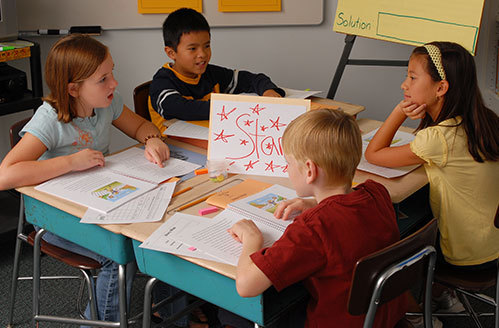My wife Nancy and I were recently in Barcelona, a beautiful and fascinating city famous for its innovations in architecture, art, and design. We were speaking to various groups about evidence-based reform in education and about cooperative learning.
The people we spoke to on that topic in Barcelona were mostly innovators, risk takers, moving away from traditional teaching to give students more autonomy, engagement, and opportunity to collaborate. It was exciting to hear their ideas and their questions.
However, what was ironic in this experience was that here we were again talking about cooperative learning as an innovation, at about the same point on the cutting edge as it was in the 1980s. Nancy and I reflected afterwards, and not for the first time, that cooperative learning has truly become a permanent innovation.
A permanent innovation is my term for a popular, widely supported practice in education that never really prevails but never disappears. Almost everyone in the field supports it, and some actually implement it, but in reality the practice is honored more in the breach of observance than in the actuality.
I think permanent innovations are rare in the hard sciences, where sooner or later, an innovation either works and becomes commonplace, or it doesn't and it dies.
In the case of cooperative learning, surveys over the years have routinely found that extraordinary proportions of teachers claim to use cooperative learning frequently. Yet observational studies find it to be a lot less common in practice, and many of the teachers who do use it merely allow students to work or discuss content in groups without any particular structure, a practice that has not been found to have positive impacts on learning. The proven forms of cooperative learning, which include group goals and individual accountability, have been known and popular for decades. They neither become standard practice nor disappear, but remain forever as permanent innovations.
Permanent innovations exist in many areas of curriculum. In science, it is inquiry teaching. In math, it is problem solving-based instruction. In writing, it is writing process models. All are extremely popular, and educators at conferences will rarely admit they do not use them (or if they do, they have good stories about external blockers, such as accountability schemes, resource limitations, and conservative school boards).
In principle, I favor these permanent innovations, but I'd feel a lot better if there were many programs that provided specific guidance in how to make effective use of them.
Each of the permanent innovations in education takes a positive view of children and aims to make classrooms joyful, engaged, and creative environments for students. There is no reason that specific programs consistent with these goals cannot be developed, evaluated, found to be effective, and disseminated broadly, and this has in fact happened with several forms of cooperative learning. Proven programs can and do embrace Dewey and Vygotsky. However, it always matters exactly how Deweyan and Vygotskyan principles are put into practice. Some day, I hope there will be many approaches that are both proven to be effective in rigorous experiments and consistent with constructivist, engaging, and prosocial principles. Then perhaps permanent innovations will no longer be called innovations. They'll be called state-of-the-art.

